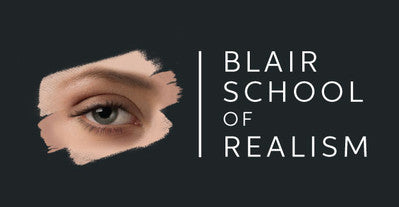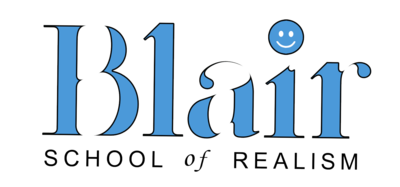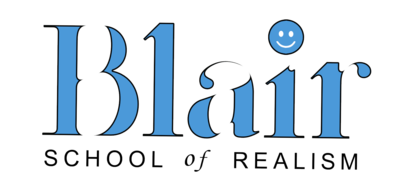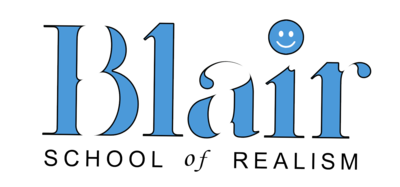Are you totally
satisfied with
Murals?
Perhaps your mural work could use a little more “wow” factor.

Feeling Lost?
You aren’t alone. Once most artists reach a certain level of quality, they have difficulty pushing their work past that level.
Large scale concerns
When you scale an image up to very large sizes, its easy to loose perspective, and the painting suffers.

Do you want to be
a better Mural Artist?
Welcome to the Next Level
Imagine being able to paint convincing illusions, as realistically as you please, with perfect anamorphic perspective.
What is anamorphic perspective? It is the intentional distortion of an image using perspective, so that it appears as a normal undistorted illusion from a single vantage point.

If you want to be the best you can be, you need to train with the best.
We know anamorphic perspective!
Welcome to our anamorphic illusions workshop
You could spend years trying to understand and unlock all the secrets of anamorphic painting. Now it’s possible for you to gain command of your painted illusions in just a few short days.

The tools
you need
We aren’t just limited to teaching you
all about the airbrush. We include a variety
of other mural tools to help you make your
present and future mural work the best possible.

What you will learn
01
Perspective
If you haven’t been formally taught about one point, two point, and three point perspective, you are in for a treat. We make it easy for you to understand the principles behind this essential artist tool.
02
Distorting the image
For an anamorphic illusion to work, it needs to be distorted correctly. We will show you three ways to accomplish this.
03
Scaling the image
Working on a large scale is different, and requires a different approach than methods used for conventional painting. We will show you a few ways to enlarge your image without sacrificing proportions.
04
Transferring the image
There are several ways of getting your image from sketch or photo to the wall, ceiling or floor. You will learn them all in one day.
05
Scaling color
The color of a swatch appears differently when scaled to a large size. You will learn how to compensate for this.
06
Tools for speed and efficiency
As with our other classes, we don’t limit your training to just the airbrush. The airbrush isn’t the only tool used for mural work. There are many tools that complement the airbrush, and we want you to be able to enjoy having them in your arsenal. You will also learn the results for each tool, so you will know which tool is best for each situation.
07
Choosing the right paint
Not all paint is created equal, and some extreme conditions require very specific paint choices. You will learn which paint to use, and how to properly reduce it for flawless application.
08
How to survive catastrophic errors
Sooner or later, we all make painting mistakes. If you don’t know how to repair a mistake, your mural will be compromised. We will teach you several ways to repair a mistake, so you will always choose the correct solution for your mural.
09
Large scale shields and when to use them
The visual world contains a variety of edges. Some edges are soft, some are hard, and some are in between. Scale makes a difference. In this class, you will learn many different useful techniques to create every type of edge.
10
The best way to make a clean edge on a rough surface
Some surfaces are so rough that conventional masking methods won’t work. We will show you how to keep those edges perfect.
11
Tape vs paper masks
Tape can be one of the best tools for creating edges, but it can also cause problems with your painting surface. Paper has its advantages and disadvantages as a mask too. You will learn all about both types.
12
Managing edges and transitions
The trickiest part of airbrushing is controlling edges. Adjusting existing edges is often necessary, but can be a bit tricky. We will teach you how to change the sharpness or softness of an edge, even after you’ve created it.
13
5 masking techniques that work
A mask can be used in a variety of ways. For example, you could use split paper/frisket techniques , shield reveal or shield conceal methods to create a line. You will learn which masks are best for any given situation.
14
How to find and fix problems in your paintings
Sometimes you can’t see the forest for the trees, and often mistakes go unnoticed. We will show you a simple technique that allows you to quickly spot problem areas that you would have otherwise overlooked.
15
How to develop observation techniques to expand your visual discrimination
Its difficult to paint anything accurately until you can really see it. We will teach you how to visually dismantle an object, then reassemble it on the painting surface.
16
Selling your work
Learning about the business of art and marketing allows you as an artist to earn money for your creations. You will learn about pricing, copyright, prints, originals, and artist representatives.
What students are saying

I attended Dru's workshop with the hope of learning to paint, I left with the ability to "see" and a system that allowed me to develop my own understanding of painting and colours. Your system has given me the freedom to explore my own creativity.
Paul MacDonald
(Airvengers) Australia

Dru's teachings showed me how to create great detail and gave me the ability to achieve PHOTOREALISM in my artworks. Thank you for pioneering the world of photorealism in airbrushing, I doubt I would have got here without your long nights and many experiments .
David Naylor
Spain
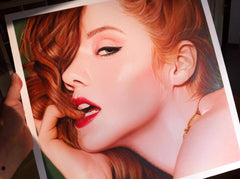
Dru's workshop influenced the way I paint and gave me some new concepts, knowledge and skills to implement into the way I worked today I recommend it!
Mitch Lowther
(Airbrush tutor) Australia
Why should you take this class? Consider your options
1. You could give up on your dreams and continue doing what you are doing, but let's be frank. You would not have continued reading up to this point if you wanted that. You are here because you believe that you deserve to be a better artist than what you are now. You aren’t the kind of person who’s going to settle for mediocrity.
2. You could try practicing on your own hoping to figure it out someday. Its very difficult and time-consuming without all the shortcuts that we could show you, but its an excellent choice if you have all the time in the world.
3. Enroll in this course and enjoy the benefits of step by step guided instruction. You get what you need without wasting years or possibly a lifetime of guessing. If you don’t have time to travel to our workshops, try our Classroom in a box series and learn from home.


Our
Guarantee
We are so sure that we offer the best airbrush course in the world that we are willing to offer you tuition money back if you don’t notice an immediate improvement in your art, and in the way you see the world after taking this course.
Anamorphic Illusions Demonstration

Painting true to life illusions
You will learn a lot of techniques in your workshop, but the most valuable lesson gained is for you to better understand and see the world differently, especially when it comes to color.
We will give you the power to create or re-create reality with stunning photorealism, and at a level no other airbrush workshop in the world offers. A photorealist painter can easily paint in any style, from abstract to impressionist, and even mimic the old masters' paintings. The choices are limitless.
As artists, we take our inspiration from the visual world around us and re-create it on board, metal, or canvas. At the Blair School, we would like to show you how to do it more successfully.
